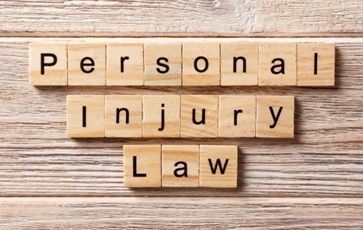
3 Primary Types Of Nursing Home Abuse
Unfortunately, some of the most vulnerable people are at the highest risk of getting abused. This includes seniors living in a nursing home. According to recent statistics, one in 10 elderly peopleover the age of 60 are believed to have been abused, with 5 million elders getting abused each year.
Sadly, these numbers might be even higher due to the fact that these cases often go unreported. Many of these seniors get abused in a nursing home. Perpetrators include family members, other residents, and nursing home staff. When a senior is abused, it can increase their chances of death by 300% .
If your loved one is in a nursing home and you are alarmed by this information, one of the first things you can do to protect them is to understand nursing home abuse. Here are three types of nursing home abuse signs to look for.
1. Physical Abuse
Of all the types of nursing home abuse, this physical abuse accounts for 27.4% of the complaints. Physical abuse is commonly caused by caregivers who do not have proper training or in nursing homes that are understaffed.
Active physical abuse includes things like hitting, pushing, or punching an elder. This type of abuse causes pain and injury. Another type of physical abuse is a misuse of restraints. This happens when nursing home residents are restrained for too long or are restrained unnecessarily.
Signs of physical abuse include:
- Unexplained bruises or other types of injuries
- Abrasions or red marks on the skin caused by restraints
- Broken eyeglasses
Sometimes, physical abuse is unintentional, but other times it is caused by caregivers who become frustrated with the resident. Besides staff and other caregivers, family members and other residents can physically abuse nursing home patients.
2. Psychological Abuse
Also considered emotional abuse, psychological abuse accounts for 19.4% of all nursing home abuse complaints. When staff, family members, or caregivers intimidate, ridicule, yell, or cause a nursing home resident to feel emotional anguish, it is considered psychological abuse.
This type of abuse can be either verbal or nonverbal, and it is known to cause emotional damage and a decline in health. Psychological abuse is not as easy to identify as physical abuse, but some key signs to look for include:
- Withdrawal from activities
- Depression or seeming hopeless
- Trouble sleeping
- Sudden onset of unusual behaviors including rocking or sucking
Nursing home residents who experience psychological abuse might also appear agitated or start having irrational fears. They might stop interacting with others or refuse to speak to their perpetrators.
3. Gross Neglect
The other primary type of nursing home abuse is gross neglect, which accounts for 15.3% of all abuse complaints in a nursing home. When a caregiver, staff, or family member doesn't properly care for a nursing home resident, it can be considered neglect. This is done either intentionally or unintentionally, due to lack of training.
Some of the most common types of nursing home neglect include not feeding residents enough food, not giving them enough to drink, not changing their clothes or bedding on a regular basis, and not providing a safe place for them to live. Common signs of gross neglect include:
- Poor personal hygiene such as bad breath or unwashed hair
- Malnourishment or dehydration
- Bedsores or unexplained injuries
- Loss of mobility due to lying in bed too much
Along with physical issues, gross neglect can also cause nursing home residents to have emotional problems such as fear, anger, and distancing themselves from loved ones.
If your loved one is in a nursing home and you see any of these signs of nursing home abuse, contact the Law Offices of Janice Maloney. In order to have the best possible chance of protecting your loved one, it's imperative to contact us right away.





